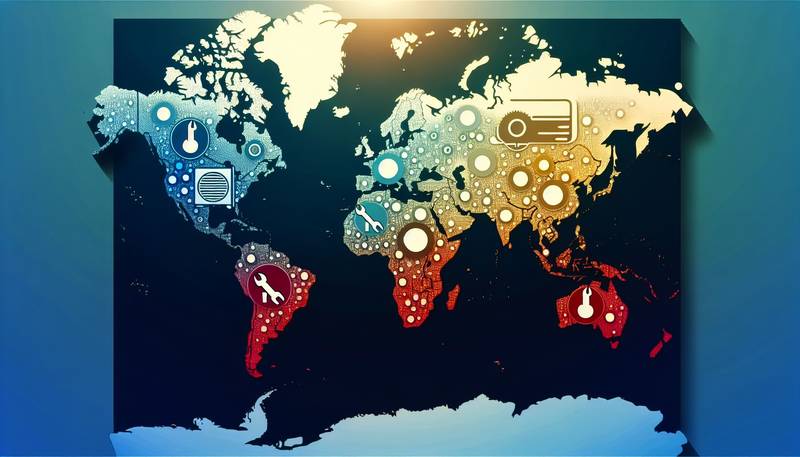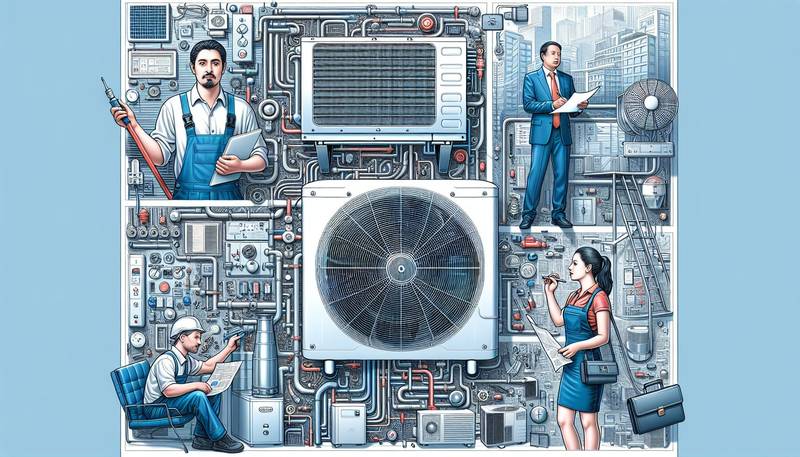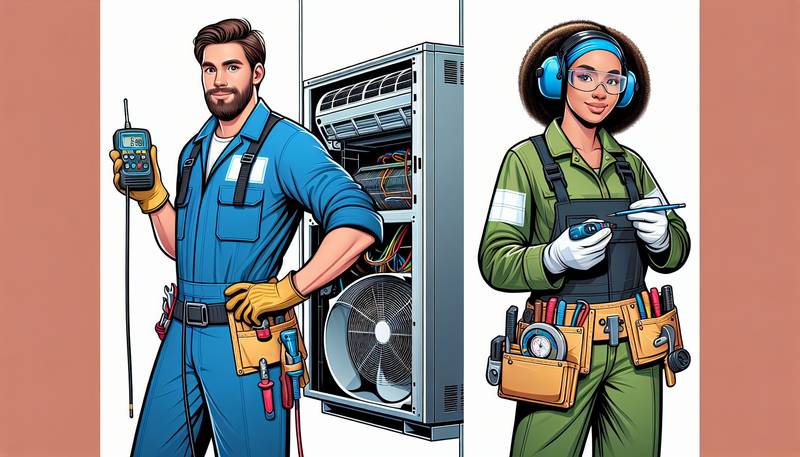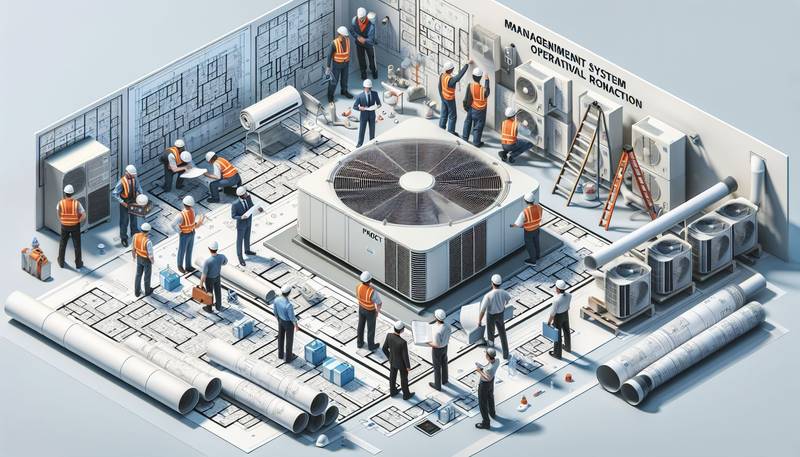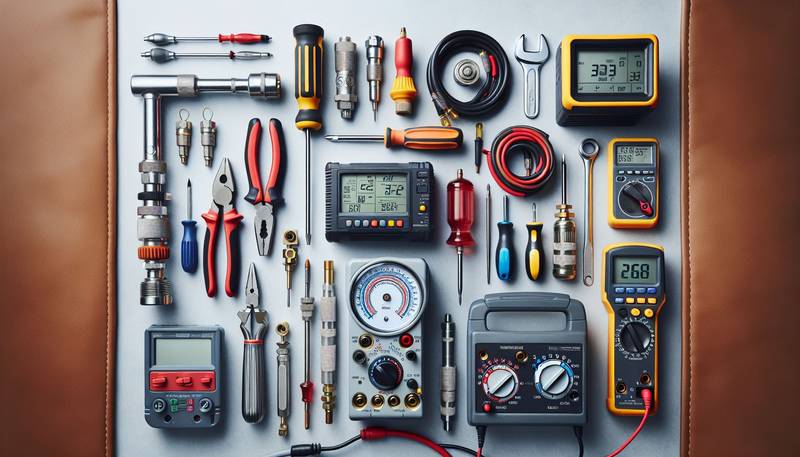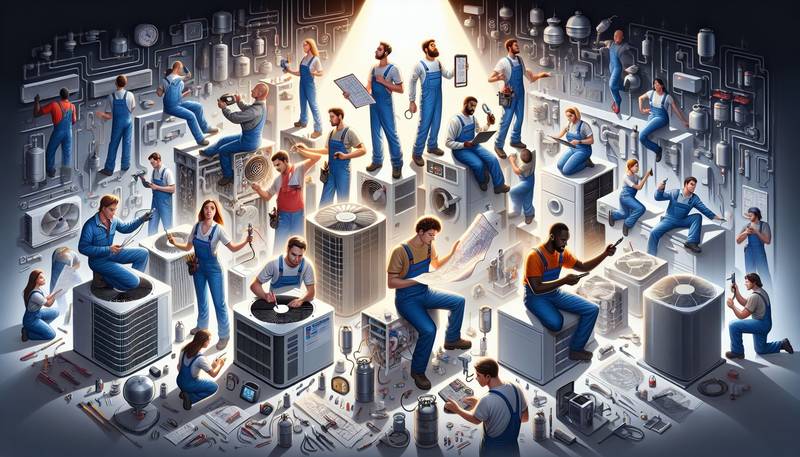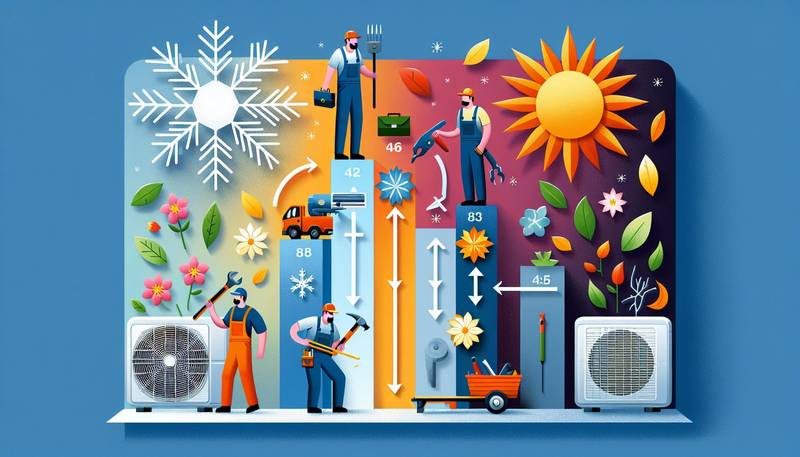The Forecast is Cool: Job Outlook for Air Conditioning Professionals
If you're considering a career in the HVAC industry, now is a great time to pursue your passion and take advantage of the numerous job opportunities that are available.
Job Growth in the HVAC Industry
In recent years, the HVAC industry has experienced substantial growth, and this trend is expected to continue in the coming years. According to the U.S. Bureau of Labor Statistics, the demand for heating, air conditioning, and refrigeration mechanics and installers is projected to grow 13%!f(MISSING)rom 2018 to 2028, much faster than the average for all occupations. This growth is driven by the increasing need for climate-control systems in residential, commercial, and industrial buildings.
Diverse Career Opportunities
One of the great aspects of working in the HVAC industry is the diverse range of career opportunities available. Whether you're interested in installing new air conditioning systems, performing routine maintenance, troubleshooting issues, or designing energy-efficient HVAC solutions, there is a job role that aligns with your skills and interests. Moreover, as technology continues to advance, HVAC professionals are increasingly incorporating smart technologies and renewable energy sources into their work, creating even more avenues for specialization.
Essential Skills for Air Conditioning Professionals
To succeed in the HVAC industry, there are several essential skills that air conditioning professionals should possess. These include a strong mechanical aptitude, excellent problem-solving abilities, attention to detail, and effective communication skills. Additionally, HVAC professionals need to stay up-to-date with the latest industry trends and regulations to ensure that they can provide the best service to their clients. By continually enhancing their skills and knowledge, air conditioning professionals can maintain a competitive edge in the field.
Training and Education Requirements
While some HVAC professionals enter the field through on-the-job training, many employers prefer candidates who have completed a formal training program or apprenticeship. These programs typically cover topics such as blueprint reading, temperature control systems, mechanical drawing, and installation techniques. Additionally, HVAC professionals may need to obtain certification from organizations such as the Environmental Protection Agency (EPA) or North American Technician Excellence (NATE) to demonstrate their expertise and competence in the field.
Job Outlook and Salary Potential
With the strong job growth projected in the HVAC industry, there are abundant opportunities for air conditioning professionals to secure stable employment and advance their careers. According to the Bureau of Labor Statistics, the median annual wage for heating, air conditioning, and refrigeration mechanics and installers was $47,610 in May 2019, with the top 10%!e(MISSING)arning more than $76,230. As more buildings require climate-control systems and existing systems need to be upgraded or replaced, the demand for skilled HVAC professionals is only expected to increase, leading to potentially higher salaries and job security.
Conclusion
As the need for air conditioning systems continues to rise, so does the demand for skilled professionals who can install, maintain, and repair these systems. The HVAC industry offers a wide range of career opportunities for individuals with the right skills and training, and the job outlook for air conditioning professionals is exceptionally positive. By pursuing a career in the HVAC industry, you can enjoy job stability, competitive salaries, and the satisfaction of helping to keep homes and businesses cool and comfortable. So, if you're passionate about working with your hands and solving complex problems, consider a career in air conditioning – the forecast is cool.


